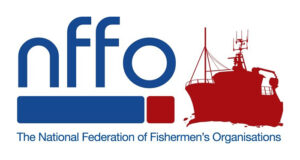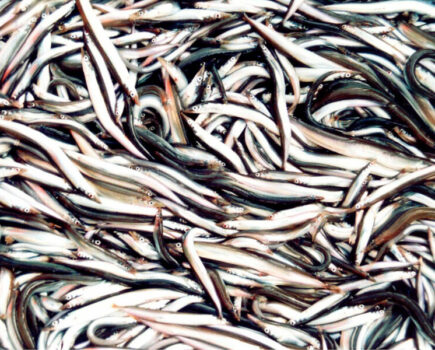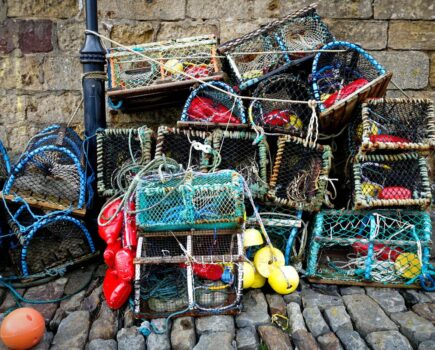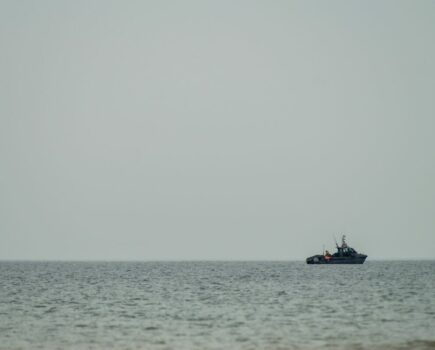The National Federation of Fishermen’s Organisations (NFFO) AGM was held last Tuesday, aboard HMS Belfast, moored in the river Thames a mile downstream from Westminster, reports Andy Read.

After delivering his annual report to the AGM, chairman Paul Gilson (pictured above) told FN that he was determined to remain positive about the future of the industry.
“One good thing that came from my trips to ports around England in the last few weeks has been to rekindle some of the enthusiasm for fishing that I felt when I was first entering the industry as a youngster.
“Meeting some of the younger fishermen we have around the coast, who have a real passion for fishing, and seeing that somewhere through the gloom, there is potential for a great future in fishing, reminds me why I am in this job – which is unpaid, and keeps a retiree like myself from putting my feet up!
“To be honest, their enthusiasm is what keeps me going. It was great to see, in very disparate places from Cumbria down to Cornwall, and over to West Mersea, where we started.
“The annual Chairman’s Report makes very sobering reading on some issues, but we shouldn’t forget that underlying all this we do have a future. At the meetings held on HMS Belfast we had really constructive dialogue with fisheries scientists, who get the point that fishermen working the sea have knowledge that needs to feed into their work, and with officials who have been quick to listen to our concerns, and in some cases address them.
“Overall, it was a great day, and I came out of it with optimism that our industry will find a way to a healthy future, and that the enthusiasm for fishing of those youngsters I met will be repaid with successful careers.”
The comprehensive 2022 Chairman’s Report outlined the huge number of impacts that the industry has seen in 2022, some developing unexpectedly – in particular the fuel crisis precipitated by the invasion of Ukraine, which remains the single biggest threat to the viability of the industry.
It also covered familiar issues impacting the industry, including spatial squeeze, MPAs, and a growing criticism from outside the industry of bottom trawling.
Paul Gilson told the AGM: “Every fishing method (indeed every human activity) has an environmental impact which must be managed and minimised, and there is much work going on in this field.
“The work of Ray Hilborn and his team in Washington University have made plain that despite the misinformation peddled by its detractors, fishing has one of the lowest ecological footprints of any food production system.
“We, as an industry, have a responsibility to make further progress, but this must be done in a way that is evidence-based, proportionate and recognises that food security is a key element in the matrix.”
His report also reviewed the range of support provided by the NFFO to members over the year, and the work it has undertaken, in particular with regulators and managers. NFFO safety officers have been working hard throughout the year to maintain and improve safety across the industry. NFFO services Ltd has continued to be able to make major funding available to the NFFO Training Trust to help young fishermen through certification, and for fishing vessels to purchase certain types of safety equipment.
The NFFO Safety Committee has been revamped under a new chairman, Nigel Blazeby, and the appointment of an experienced and energetic full-time officer, Charles Blyth, has begun to encourage the MCA to move towards greater two-way communication with the industry and to assist vessel operators’ compliance with the complex raft of safety rules.
“A particular focus,” Paul Gilson reported, “has been to bring a degree of common sense and realism to the new under- 15m Safety Code, and to have an approach to vessel stability that has a degree of flexibility to meet varying circumstances.
“An NFFO meeting with transport minister Robert Courts emphasised that the problem lies not so much with the Code but with the MCA’s approach to surveys.”
On fisheries management, the NFFO has continued to input to the development of management plans, with particular emphasis on bass, crab and other shellfish, and the mixed demersal fishery. With the Joint Fisheries Statement looming large, and the hangover from Brexit, the federation had a huge amount of work to do to ensure that the industry was at the forefront of discussions, said Paul Gilson.
The Brexit TCA was not the end of the line, the chairman told the AGM, although it was ‘a defeat, a disappointment and a setback’. “It does not represent the CFP status quo. Although many CFP rules have been incorporated into UK domestic legislation (as EU retained law), the UK now has the scope to diverge from those rules when it is deemed necessary or desirable.
“2026 marks the end of the transitional period which allows EU fleets to operate freely within the UK EEZ. After that point, access will be a feature of annual fisheries negotiations. We can expect both the EU and the UK to manoeuvre for best position ahead of and during those negotiations, complicating the already complex task of managing shared stocks.”
Paul Gilson’s annual report finishes: “There is only one conclusion. With all that is going on across multiple fronts, and what we can see is coming towards us in future years, it is absolutely essential that the fishing industry in England and Wales has a vigorous, inclusive, responsive organisation at national level to ensure that its voice is heard.
Defra minister addresses AGM
 Invited to address the NFFO meeting, Defra minister Victoria Prentis did so remotely, providing a speech, but also taking detailed questions from the many fishermen’s association representatives in attendance.
Invited to address the NFFO meeting, Defra minister Victoria Prentis did so remotely, providing a speech, but also taking detailed questions from the many fishermen’s association representatives in attendance.
NFFO CEO Barrie Deas (pictured left) said: “Whilst the minister was not able to provide much succour on the burning issue of fuel prices, it is clear that some of the work that the NFFO has undertaken this year has had resonance within Defra.
“In particular, the spatial squeeze report that the NFFO jointly commissioned with the Scottish Fishermen’s Federation, which articulated just how much fishing ground is likely to be lost to the industry in the next few years, appears to be helping the minister in arguing the cause for the fishing industry with other Whitehall departments and ministries.
“Chris Ranford, on behalf of the Cornish FPO, where they face unprecedented development of wind power in the Celtic Sea, made particularly clear to the minister the need for the fishing industry to be genuinely involved, at an early planning stage, before any site designation for new wind farms is made.
“It is vital on this issue that Defra makes this view on our behalf to the other ministries involved in increasingly ambitious offshore development.
“On fuel issues, the minister was candid that the Treasury will not be persuaded that fishing is a special case when it comes to the impacts of fuel prices. This is concerning, as industry right now seems to be at a tipping point.
“Short-term support, to prevent the wholesale loss of crew who can’t survive on the wages remaining on many boats, due to high fuel bills, will save a huge amount of pain and dislocation to the fish value chain, not just the catching sector, whilst the industry adapts and further reduces its carbon footprint in the future.
“Juliette Hatchman, on behalf of the SWFPO, made this point particularly clearly to the minister, citing the example of the oldest member of the SWFPO, who is very close to walking away from the industry entirely after losing his longest- serving skipper, who sees little light at the end of the tunnel. Short-term aid now can ease a lot of potential long-term pain, and is an argument we feel the minister should be making with the Treasury.
“We discussed two other issues, and agreed to follow up on one of these with Defra officials in person very shortly. The NFFO will be inputting into what I think is an internal review of the IFCAs.
“We made the point briefly – which we will be able to elaborate on at the next meeting – that many IFCAs are simply being diverted away from what were once core activities in fisheries by external pressures to spend their time and effort, for example, working on MPAs. Without adequate resourcing, the IFCAs are struggling to meet the new obligations being imposed upon them, and something has to give.
“The other issue, which we are fully aware is not the primary responsibility of Defra, is the MCA under-15m Code. Not the Code itself, in fact, but the way that it is being interpreted and enforced. We are very lucky here at the NFFO in having Charles Blyth, ex-MCA himself, as our health and safety officer. Whilst he was able to confirm to the minister that the MCA is finally showing of signs of listening to industry concerns in recent weeks, a new approach from the agency to implementation of the Code is still clearly needed.
“Although this is primarily a DoT issue, we would still expect Defra, as the sponsor for industry, to make this argument within government on our behalf.”
This story was taken from the latest issue of Fishing News. For more up-to-date and in-depth reports on the UK and Irish commercial fishing sector, subscribe to Fishing News here or buy the latest single issue for just £3.30 here.








